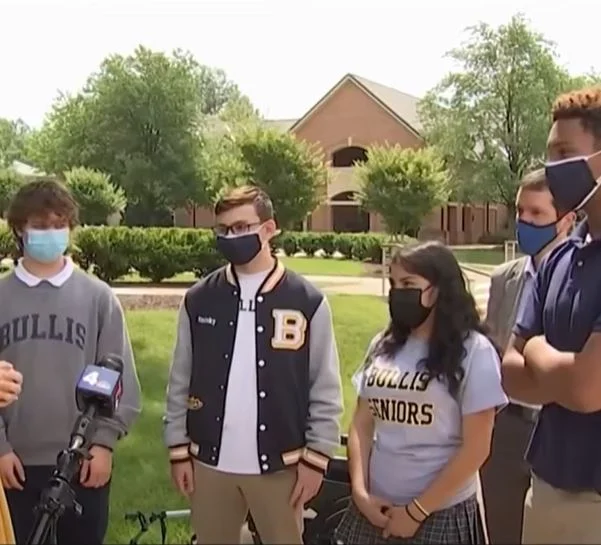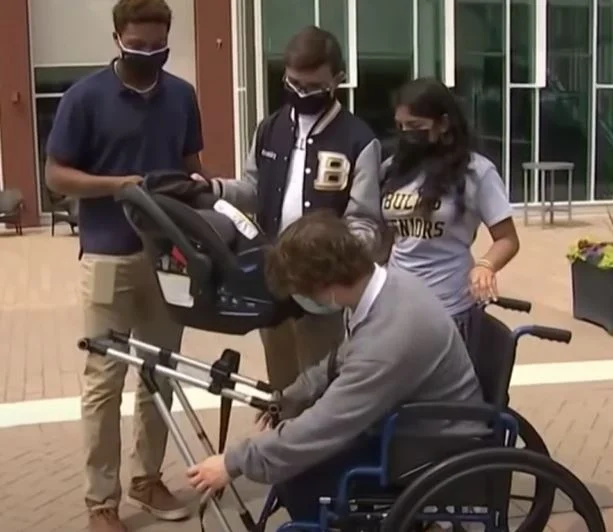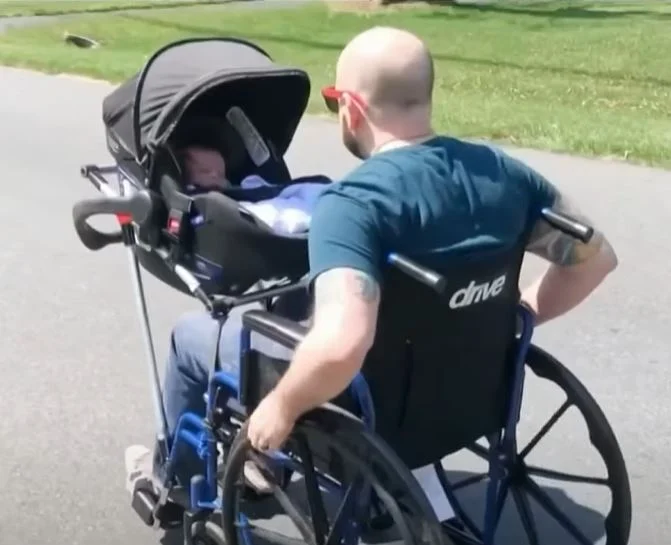Jeremy King, a resident of Germantown, Maryland, beams with pride as a father.
However, a surgery to remove a brain tumor left him with physical challenges.

SOURCE:YOUTUBE – NBC4 WASHINGTON
When Jeremy and his wife discovered they were expecting a child, they were left pondering how Jeremy could safely accompany their child on walks.
Jeremy was determined to be an active participant in his child’s upbringing.
The surgery had impacted his balance, but he and his wife, Chelsie, were not willing to abandon their aspiration of Jeremy safely caring for their child.
Chelsie King shared with Good Morning America,
“While he can walk, he can’t do so safely carrying a child…So we jumped into, ‘OK, what do we need in order for him to parent safely?’ and honestly, not a whole lot came up — there’s just really not a ton of resources out there for disabled parents.”

SOURCE:YOUTUBE – NBC4 WASHINGTON
In her quest for a solution, Chelsie approached teacher Matt Zigler, her colleague at Bullis School.
Zigler conducts a class named “Making for Social Good” at Bullis School, emphasizing the creation of products that foster positive societal change.
Chelsie inquired if Zigler could assist in devising a mechanism that could be attached to Jeremy’s wheelchair.
As luck would have it, Zigler’s students were just beginning a new term.
He saw this as a golden opportunity for them to craft a solution for the Kings’ dilemma.
Zigler explained to GMA:
“The idea of the course is to start out by trying to understand the problem, so we did interviews with the family…We talked to someone at the local fire department who actually does infant car seat installation training to try to better understand how those things work.”
The students procured a wheelchair from the school nurse to use as a prototype.
Leveraging computer software like MakerSpace for 3D printing and making several visits to Home Depot, they embarked on their project.

SOURCE:YOUTUBE – NBC4 WASHINGTON
They rigorously tested their designs to ensure the safety of the baby, even using cinder blocks to test if it could hold more weight than an actual infant.
In the end, they successfully created two wheelchair adaption devices, which they named “WheeStroll.”
Jeremy King was deeply moved by the students’ commitment and effort.
Because of them, he was able to take his son on a walk while using his wheelchair.
One of the students, Benjamin Gordon, told NBC4:
“To see the smile on his face and to know that I was able to help give him that connection with his child that he wouldn’t be able to have because of his disabilities.”
Chelsie King was equally impressed by the students’ progress and their genuine enthusiasm for the project.
The end product was not only successful but also left a huge mark on everyone involved.
They also ended up winning two international awards for the “WheeStroll.”
Please SHARE this with your friends and family.